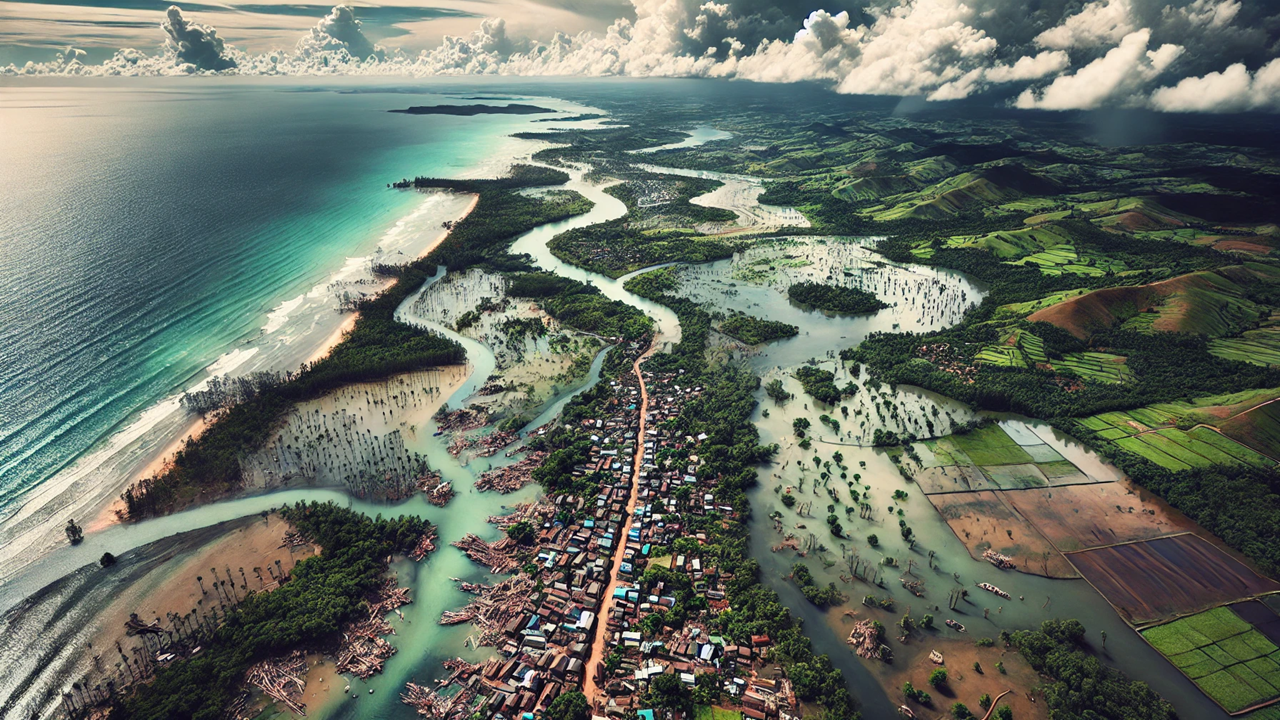Cyclone Chido Devastates Northern Mozambique, Displacing Thousands and Worsening Humanitarian Crisis
UNHCR, the UN Refugee Agency, has expressed deep concern for the affected regions and has mobilized resources in collaboration with the Government of Mozambique and other humanitarian partners.

Tropical Cyclone Chido struck northern Mozambique over the weekend, bringing catastrophic rains and winds to Cabo Delgado and Nampula provinces. The powerful storm has left a trail of destruction, with nearly 10,000 homes destroyed, 33 schools damaged, and approximately 190,000 people in urgent need of humanitarian assistance. Already vulnerable communities, many hosting forcibly displaced individuals, now face compounded challenges.
UNHCR, the UN Refugee Agency, has expressed deep concern for the affected regions and has mobilized resources in collaboration with the Government of Mozambique and other humanitarian partners.
Within 48 hours of the cyclone, UNHCR provided aid to 2,600 individuals at the largest accommodation center in Pemba, the capital of Cabo Delgado. Emergency relief included blankets, sleeping mats, mosquito nets, and shelter supplies. UNHCR has also prioritized protection services for vulnerable groups, especially women, children, and the elderly.
Rural Devastation and Long-Term Vulnerabilities
Preliminary assessments reveal extensive damage in rural areas, with entire villages reduced to rubble. Years of conflict and forced displacement have left families in Cabo Delgado and Nampula with limited resources. Cyclone Chido has undone years of slow recovery, washing away scarce belongings and fragile homes.
The Maratane Refugee Camp in Nampula, housing more than 8,000 refugees from the Democratic Republic of Congo and Burundi, fared better, with minimal damage reported. UNHCR credits recent investments in climate-resilient housing for preventing a larger disaster in the camp.
Regional Impacts and Broader Challenges
Cyclone Chido’s reach extended beyond Mozambique:
- Mayotte, a French overseas territory, experienced fatalities and infrastructure damage, particularly affecting asylum-seekers and refugees.
- Southern Malawi was hit with heavy rains and winds, damaging homes and infrastructure in multiple districts. UNHCR has pre-positioned shelter kits to aid the Government’s response.
UNHCR is also concerned that Cyclone Chido may herald the start of a destructive rainy season, with increased risks of cyclones and flooding threatening already precarious livelihoods in the region.
Proactive Disaster Preparedness and Climate Resilience
Ahead of the cyclone, UNHCR and its partners pre-positioned emergency supplies and disseminated disaster preparedness messages via TV, radio, WhatsApp, and hotlines. Local disaster management committees were trained to prioritize aid for vulnerable groups, ensuring a faster response.
These efforts highlight the importance of climate-resilient infrastructure and community preparedness as the region grapples with recurrent extreme weather events.
Urgent Call for Resources
UNHCR’s efforts to aid affected populations are being stretched thin. The agency is appealing for urgent funding to support its operations in Mozambique and neighboring countries, where the need for food, shelter, and medical assistance continues to rise.
“This storm underscores how climate change disproportionately impacts the most vulnerable,” a UNHCR spokesperson said. “We are committed to standing with these communities, but we need the global community to help us deliver life-saving assistance.”
As Mozambique and the region brace for the coming rainy season, the focus remains on protecting displaced communities and fortifying their resilience against future climate shocks.
- READ MORE ON:
- Cyclone Chido
- Mozambique










